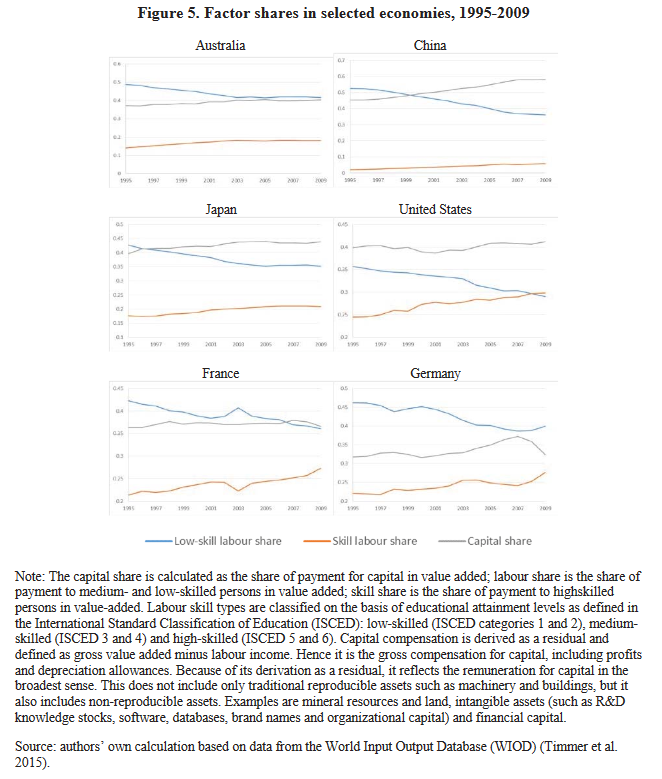The paper highlighted today, prepared by Rod Tyers and Yixao Zhou, is a working paper for the Centre for Applied Macroeconomic Analysis at the Australian National University.
It’s an ambitious attempt to model the outcome of the U.S.-China trade dispute in a number of negative scenarios and to try and figure out what the net effects could be for not only the protagonists but also some of the biggest related parties i.e. the EU, Japan, Australia and the Rest of the World.
Perhaps the most important finding is that China is the biggest single loser in all the outcomes modeled by the researchers.
Before the paper gets to that conclusion it spends some time on the roots of where today’s global desire to erect fences of one sort of another come from. Perhaps the best summary of this are the charts extracted below.
The blue line is the key. It’s the proportion of aggregate wages obtained by the lower skilled in the respective economies. See a pattern?

That’s globalization at work. It’s been great for me and most reading this post but unquestionably sucky for those with neither capital nor smarts. Those folk though have votes; and we all know where that’s led.
The paper has its faults. Chief among them is the deterministic approach that leads to the conclusions so its probably best to stay at a high level and not get worried about some of the very specific outcomes the modelling spits out. For that reason I’d suggest you give pages 1~13 a look and then jump on to the conclusion at P. 34.
China’s best and brightest will have seen this work and have models of their own that also highlight how weak China’s hand is in present negotiations. Which, if indeed the case, is encouraging. It suggests a successful outcome to the current talks if Chinese flexibility is required.
The alternative, the work suggests, which is a breakdown in the talks and U.S. unilateral protectionism against not only China but other major trading partners leads unequivocally to major losses for China and the Rest of The World and will do little for America’s lower paid/skilled who’ll be in a worse pickle than they are today; and nobody wants that. Right? Let’s hope so.
You can access the paper in full via the following link
China-US Trade Dispute.
Happy Sunday.